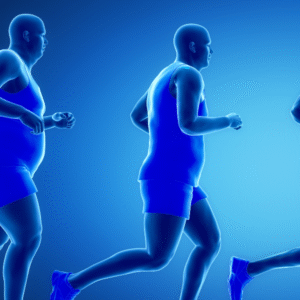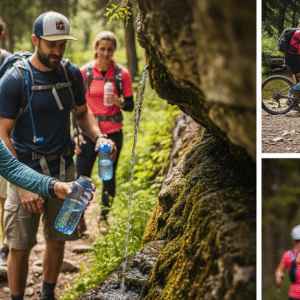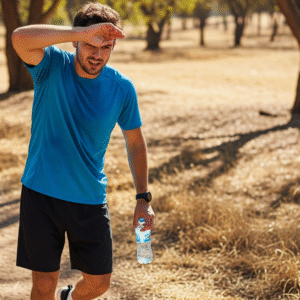Did you know nearly 40% of seniors face dehydration? This condition can cause serious health problems. As more people get older, knowing about dehydration’s dangers is key. It affects seniors’ physical, mental, and emotional health.
Keeping seniors hydrated is vital for their memory, movement, and mood. The role of hydration in seniors’ health cannot be ignored. It helps prevent many health issues.
Key Takeaways
- Dehydration affects a significant percentage of the senior population.
- Proper hydration is crucial for cognitive function and memory.
- Dehydration can lead to mobility issues in seniors.
- Mood stability is linked to adequate hydration levels.
- Seniors are at a higher risk of dehydration due to various factors.
The Silent Health Threat for Older Adults
Older adults face a silent health threat from dehydration. This is due to changes in their bodies as they age. Dehydration can cause serious problems like memory issues, trouble moving, and mood swings. It’s important to know why seniors get dehydrated to prevent and manage it.
Age-Related Changes in Fluid Balance
As people get older, their bodies change in how they handle fluids. They have less body water, making them more likely to get dehydrated. Also, their kidneys don’t work as well, making it harder to keep fluids in balance. This risk is higher in hot weather or when they’re sick.
| Age-Related Change | Impact on Fluid Balance |
| Decrease in body water proportion | Increased risk of dehydration |
| Impaired kidney function | Reduced ability to regulate fluids |
Decreased Thirst Sensation in Seniors
Seniors often don’t feel thirsty as much as younger people do. This makes it hard for them to know when they need to drink. It’s up to caregivers and doctors to remind seniors to drink often, even if they don’t feel like it.
Understanding Dehydration in the Elderly Body
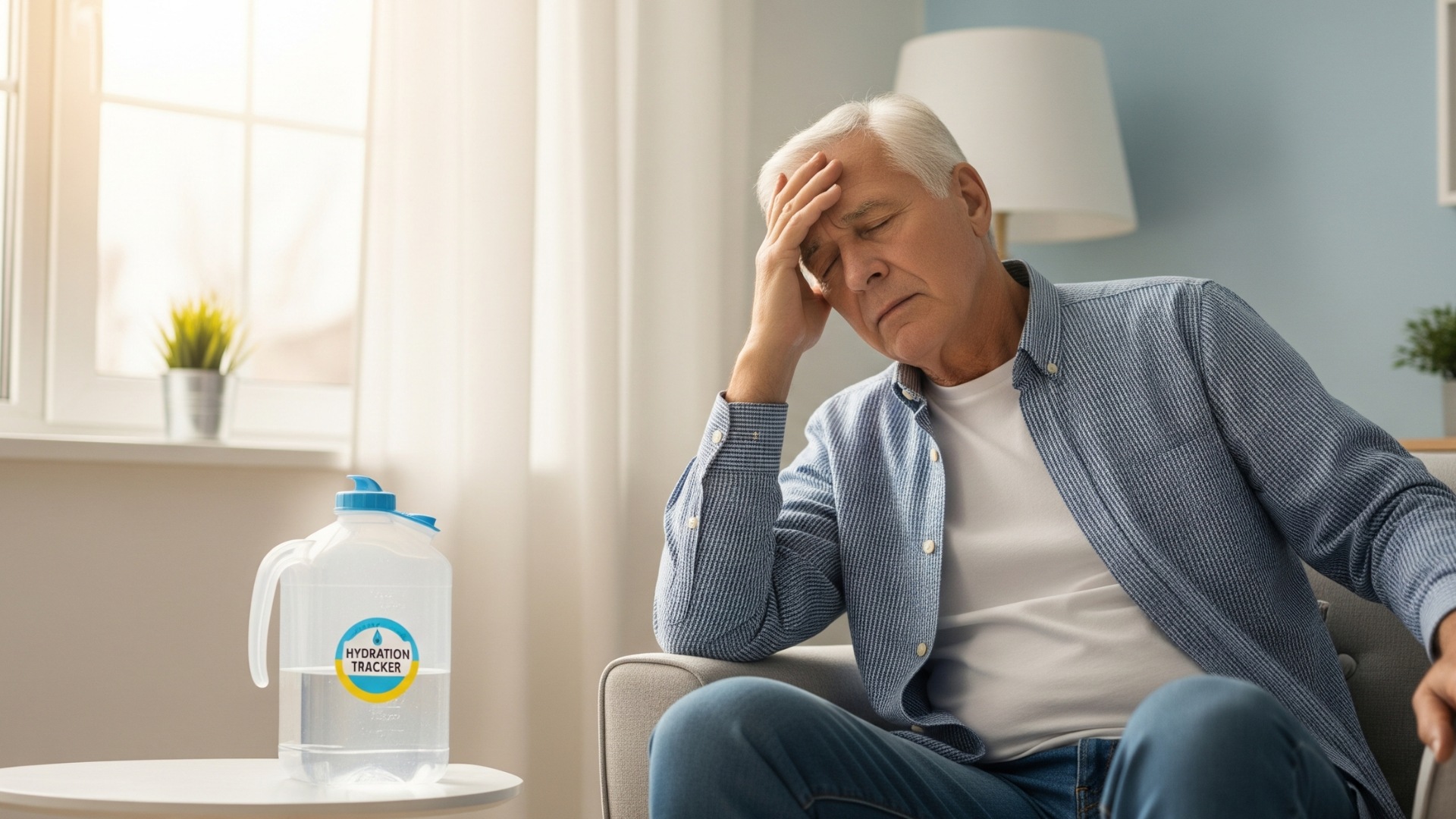
Older adults are more at risk of dehydration. This is because their bodies change with age. It’s important to know why this happens and what can increase the risk.
Physiological Changes That Increase Risk
As people get older, their bodies change in ways that affect how they handle fluids. They might not feel thirsty as much, leading to not drinking enough water. Also, older adults have less water in their bodies, making them more likely to get dehydrated.
Common Causes and Contributing Factors
There are many reasons why dehydration is a big problem for the elderly. These include:
- Medication Side Effects: Some medicines make you pee more, which can lead to dehydration.
Medication Side Effects
- Some drugs, like diuretics and certain antidepressants, can make you pee a lot. This increases the risk of dehydration.
- Chronic Health Conditions: Diseases like diabetes and kidney problems can mess with how the body handles fluids.
Chronic Health Conditions
- Long-term health issues can make it hard for the body to keep fluids balanced. This raises the risk of dehydration.
- Environmental Factors: Being in hot weather or dry places can make fluid loss worse.
Environmental Factors
- High temperatures and low humidity can really up the risk of dehydration in older adults.
How Dehydration Affects Cognitive Function and Memory
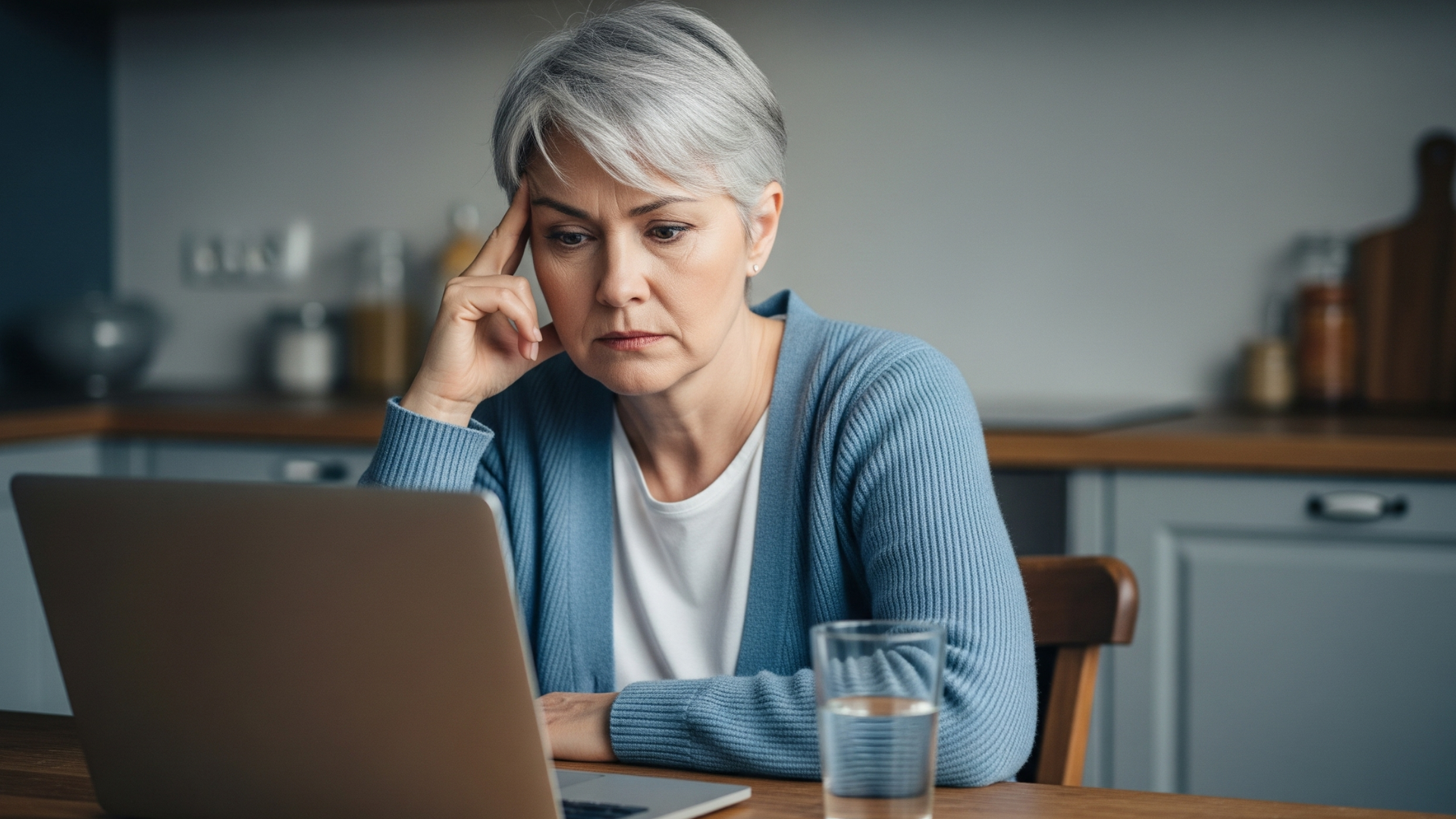
Dehydration can harm the brain and memory of seniors. It can make it hard for them to do everyday tasks. This can lead to a loss of independence.
Brain Function During Fluid Imbalance
Dehydration hurts the brain a lot. It reduces blood volume. This means less oxygen and nutrients for the brain.
This can mess up thinking and memory. It’s like a fog that makes it hard to focus.
Short-term Memory Impairment
Dehydration can mess with short-term memory in seniors. Even a little dehydration can make it tough to remember things. It’s like trying to hold water in your hands.
This can be scary because it might look like dementia. But it’s actually just dehydration.
Confusion and Disorientation Symptoms
Severe dehydration can cause seniors to get confused and disoriented. These symptoms are serious and need quick medical help. They can also make seniors more likely to fall.
It’s important to spot dehydration early. Drinking enough water is a simple way to keep the brain healthy in seniors.
Mobility Limitations Caused by Dehydration
Dehydration can lead to mobility problems in seniors. This includes muscle cramps and balance issues. When seniors don’t have enough fluids, their muscles and joints don’t work right.
Muscle Weakness and Cramping
Dehydration can make muscles weak and cause cramps. Muscle cramps can be very painful and happen suddenly. Drinking enough water can help avoid these problems.
Joint Pain and Stiffness
Dehydration also hurts joints, causing pain and stiffness. Without enough fluids, joints can get inflamed. This makes moving harder. Drinking enough water helps keep joints healthy.
Balance Issues and Fall Prevention
Dehydration can make it hard to balance and increase fall risks. Seniors who are dehydrated might feel dizzy or lightheaded. Preventing falls is key, and staying hydrated is a big part of it.
| Mobility Issue | Cause | Prevention |
| Muscle Weakness | Dehydration | Adequate Fluid Intake |
| Joint Pain | Dehydration-induced Inflammation | Hydration and Joint Care |
| Balance Issues | Dizziness due to Dehydration | Proper Hydration and Fall Prevention Strategies |
The Impact of Dehydration on Emotional Wellbeing
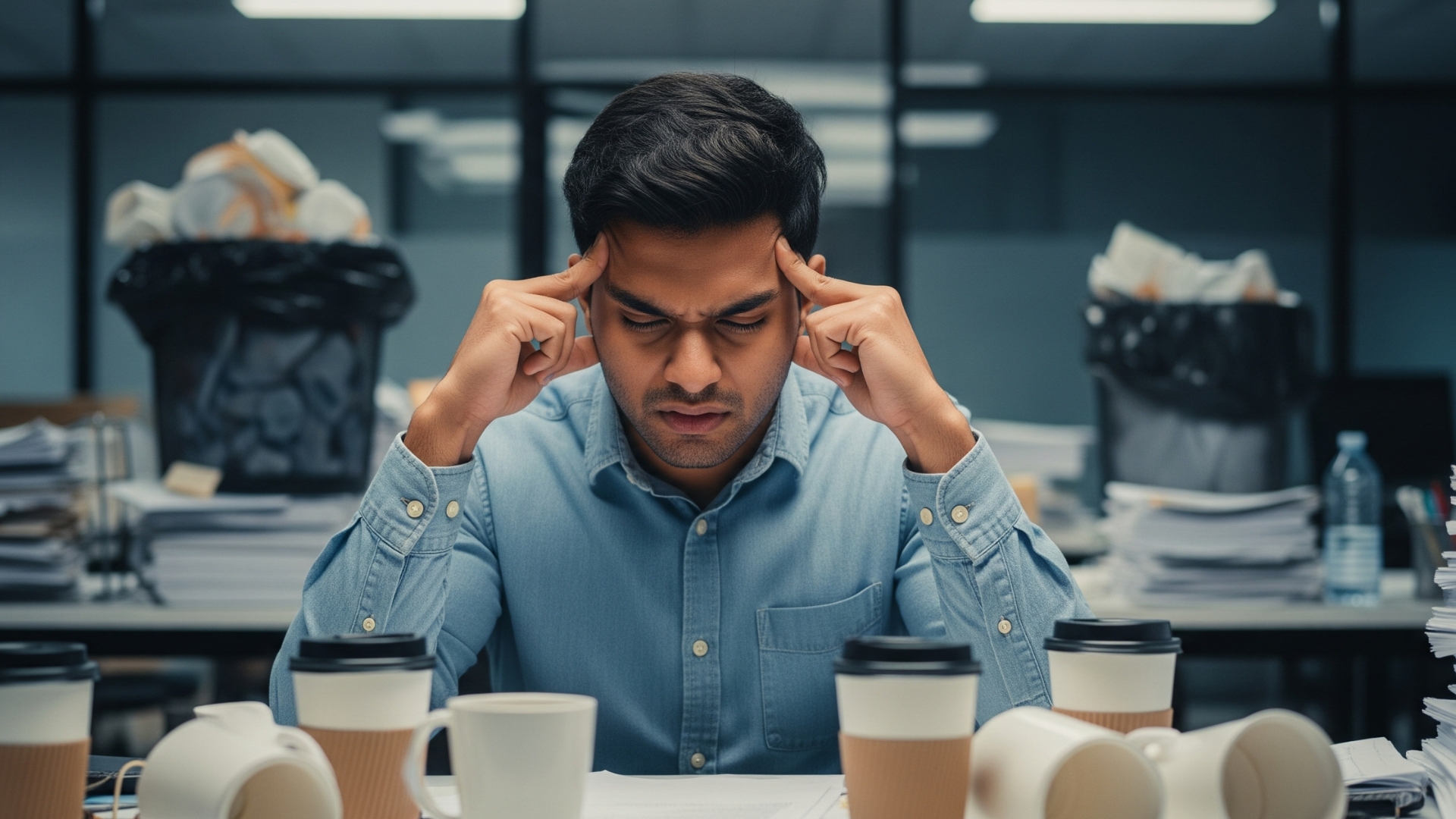
Dehydration can deeply affect the emotional wellbeing of seniors. It can change their mood, how they think, and their overall happiness. Seniors may feel a range of emotions that are hard to handle.
Keeping seniors hydrated is key for their emotional health. Dehydration can mess with the body’s fluid balance. This can change how they feel emotionally.
Mood Swings and Irritability
Dehydration often leads to mood swings and irritability in seniors. They might get upset easily, even over small things. This can make it hard for them to get along with family and caregivers.
Depression and Anxiety Connections
Dehydration can also make depression and anxiety worse in seniors. When the body lacks water, it can’t control emotions well. This can lead to feeling sad, hopeless, and anxious. Dehydration can make mental health issues worse, so it’s important to watch hydration levels.
Knowing how dehydration affects seniors’ emotions helps caregivers and family. They can make sure seniors stay hydrated. This helps keep their emotional health in check.
Effective Hydration Strategies for Seniors
Seniors can greatly benefit from simple hydration strategies in their daily routine. Proper hydration is crucial for their health and wellbeing.
Creating a Daily Hydration Schedule
Creating a daily hydration schedule is key for seniors. It helps them drink enough fluids all day. They can set reminders or make a routine to drink water at certain times, like when they wake up or before meals.
Hydration-Rich Foods and Beverages
Adding foods and drinks with lots of water to their diet helps seniors stay hydrated. Watermelon, cucumbers, and broth-based soups are good choices. Herbal teas or infused water are also refreshing and hydrating.
Helpful Tools and Reminders
There are many tools and reminders that can help seniors stay hydrated. Here are a few:
- Using smart water bottles that track water intake.
- Downloading hydration apps that send reminders.
- Having caregiver support systems in place to monitor and encourage fluid intake.
Smart Water Bottles
Smart water bottles track how much water you drink and remind you to drink more. They’re great for keeping seniors on track.
Hydration Apps
Hydration apps make it easy to keep track of water intake and get reminders. They help seniors meet their hydration goals.
Caregiver Support Systems
Caregivers are crucial in helping seniors stay hydrated. They can remind them to drink and help monitor their fluid intake.
Special Considerations for Seniors with Dementia
Seniors with dementia need extra help with staying hydrated. They might not feel thirsty or remember to drink. Caregivers can offer fluids regularly and make drinking easier and more accessible.
| Hydration Strategy | Description | Benefit |
| Daily Hydration Schedule | Set reminders or routine times to drink water. | Ensures consistent fluid intake. |
| Hydration-Rich Foods | Incorporate foods with high water content. | Contributes to overall hydration. |
| Helpful Tools | Use smart water bottles, hydration apps, and caregiver support. | Aids in monitoring and maintaining hydration. |
Conclusion: Prioritizing Hydration for Better Senior Health
Dehydration can really hurt seniors’ memory, how well they move, and their mood. It’s key to keep them hydrated for their health. Good hydration plans can lower the chance of dehydration problems.
Knowing how important water is for seniors helps caregivers and family members. They can make sure seniors drink enough water. This means setting a daily water plan, eating foods and drinks with lots of water, and using reminders.
Keeping seniors hydrated is vital for their health. It helps their brain work better, improves how they move, and keeps them feeling good. By focusing on hydration, seniors can stay independent and live a better life.
